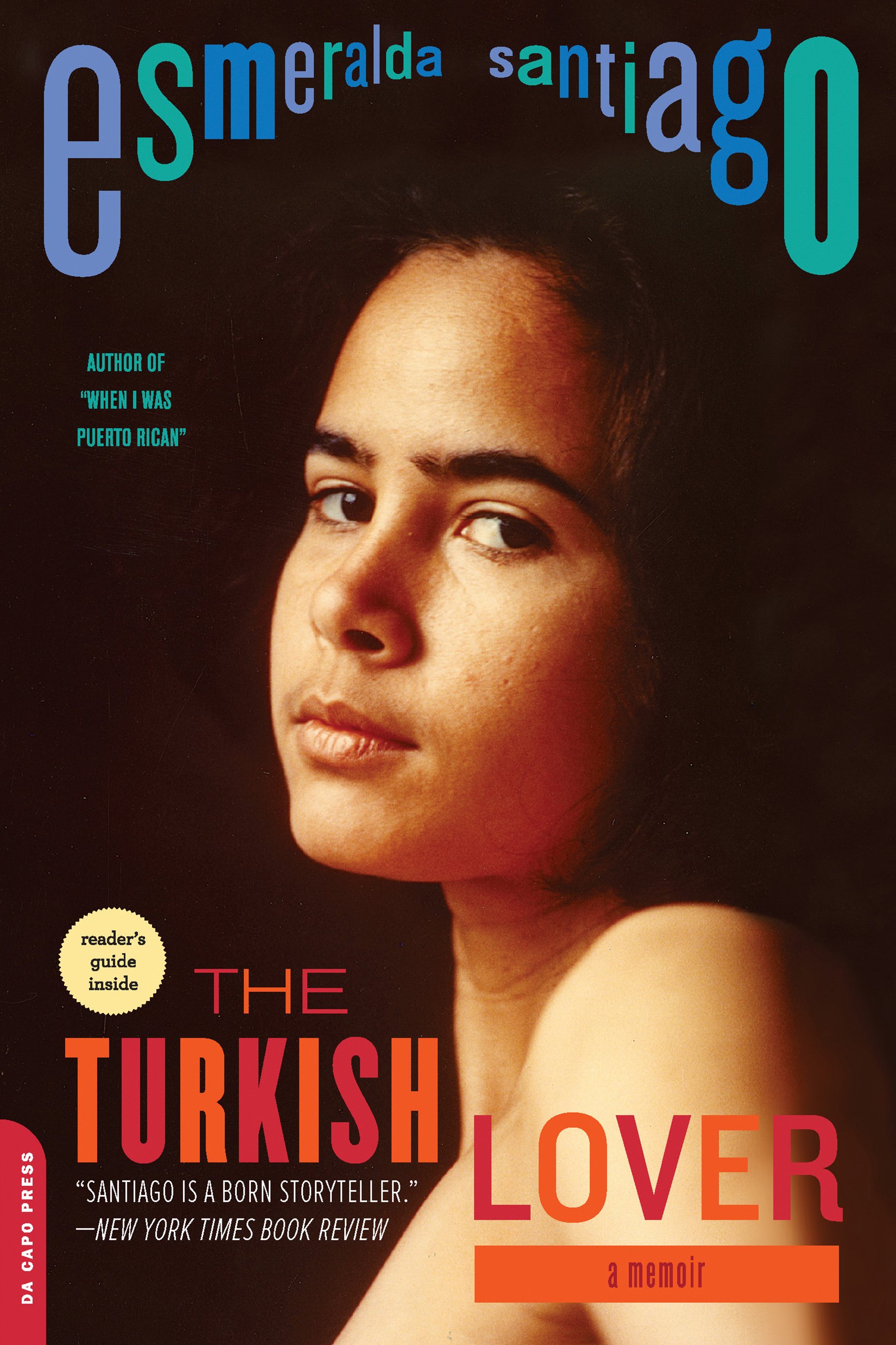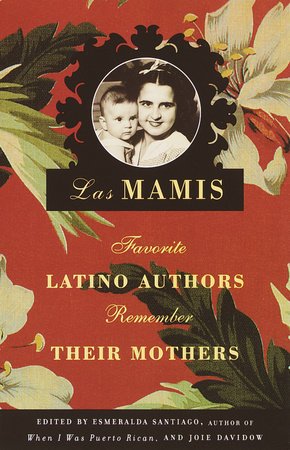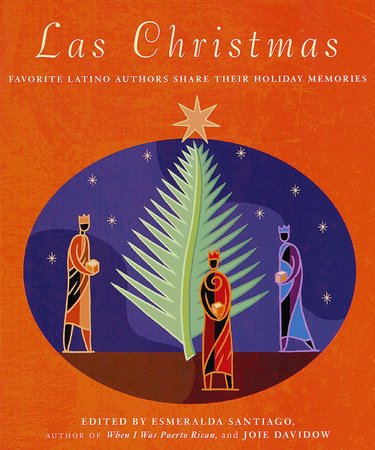
Esmeralda Santiago’s story is as vivid and evocative as her name. The oldest of eleven children, she began life in a rippled zinc shack in rural Puerto Rico, where the coqui tree frogs sang at night in mango groves. At the age of thirteen, she left this magical landscape when her mother gathered her huge family and set off for New York with dreams of a better life
In a decaying Brooklyn tenement, forbidden to go outside near the dreaded “projects,” Esmeralda kept her bothers and sisters enthralled with stories while her determined mother supported them all by working in a bra factory. The chance (a long shot) that would eventually lead to Harvard and a career comes at an audition for the High School of Performing Arts, delivering a dramatic monologue of which neither she nor the judges can understand one word.
Esmeralda Santiago’s Puerto Rican childhood is one of sorcery, smoldering war between the sexes, and high comedy. Hers is a portrait of a harsh but enchanted world that can never be reclaimed.
Almost a Woman is a sequel to When I Was Puerto Rican, the memoir of Esmeralda Santiago's childhood. The story covers her life as an adolescent and young woman when she lived in Brooklyn, New York, with her mother (Mami) and 10 siblings during the 1960s. As Puerto Rican immigrants, the family suffered through periods of poverty exemplified by the author's trips to the welfare office with Mami, where she translated her mother's Spanish so that they could obtain benefits. Esmeralda’s good humor, zest for life and fighting spirit permeate her chronicle and moderate the impact of the hard times she describes. She studied acting at the prestigious Performing Arts Public High School and, despite feeling out of place because of her heritage, she was able to obtain acting work in a children's theater company and had a small role in the movie Up the Down Staircase. She had to lose her Puerto Rican accent to widen her acting range but she never lost her connection to her family and her heritage. Mami prevented her from dating until she was 17, but Esmeralda details several romantic involvements, including a tumultuous affair with a Turkish filmmaker.
Legions of fans waited five long years for the next chapter of the story begun in her memoirs When I was Puerto Rican and Almost a Woman. In The Turkish Lover, Esmeralda finally breaks out of the monumental struggle with her powerful mother— only to come under the thrall of Ulvi, an older, more worldly Turkish man. Esmeralda then discovers that romantic passion, too, can gradually become a prison out of which she must emerge to become herself. Her journey of self-liberation and self-discovery is a daring one, candidly and zestfully recounted, and leads, most improbably to her triumphant graduation from Harvard. Throughout, she detail her affair with Ulvi, using the lens of their troubled relationship to explore racism, sexism, feminism, and the value of education. The expansive humanity, earthy humor, and psychological courage that made Esmeralda's first two books so successful are on full display again with The Turkish Lover.
América Gonzalez is a hotel housekeeper on Vieques, an island off the coast of Puerto Rico, cleaning up after wealthy foreigners who don’t look her in the eye. Her alcoholic mother resents her; her married boyfriend, Correa, beats her; and their fourteen-year-old daughter thinks life would be better anywhere but with América. So when América is offered the chance to work as a live-in housekeeper and nanny for a family in Westchester, New York, she takes it as a sign to finally make the escape she's been longing for. Yet, even as América revels in the comparative luxury of her new life—daring to care about a man other than Correa—she is faced with the disquieting realization that no matter what she does, she can never really escape her past. Deftly written and fiercely resilient. this novel explores the ever-shifting definition of what it means to be American and exemplifies the spirit of every immigrant who dares to realize the American dream.
As a young girl growing up in Spain, Ana Larragoity Cubillas is powerfully drawn to Puerto Rico by the diaries of an ancestor who traveled there with Ponce de León. And in handsome twin brothers Ramón and Inocente—both in love with Ana—she finds a way to get there. She marries Ramón, and in 1844, just eighteen, she travels across the ocean to a remote sugar plantation the brothers have inherited on the island. Ana faces unrelenting heat, disease and isolation, and the dangers of the untamed countryside even as she relishes the challenge of running Hacienda los Gemelos. But when the Civil War breaks out in the United States, Ana finds her livelihood, threatened by the hacienda’s slaves, whose richly drawn stories unfold alongside her own. And when at last Ana falls for a man who may be her destiny—a once-forbidden love—she will sacrifice nearly everything to keep hold of the land that has become her true home. This is a sensual, riveting tale, set in a place where human passions and cruelties collide: thrilling history that has never before been brought so vividly and unforgettably to life.
The women lovingly portrayed in Las Mamis represent a cross section of Latino life and culture. They come from rich families in the big cities of Latin America, from rural immigrant families, and from the worlds in between—and they share an extraordinary inner strength, often maintained against incredible odds. Pressed by conflicting cultural expectations, circumstance, and religion, they have managed the challenges of motherhood, leaving enduring legacies for their children. Now, in these vivid, poignant, and sometimes hilarious reminiscences—all of them infused with distinct sabor latino—Las Mamis celebrates the universality of family love and the special bond between mothers and children.
Twenty-five celebrated Latino writers delight and move us with their recollections of Christmas in this splendid holiday extravaganza. From Julia Alvarez’s tale of how Santicló delivered a beloved uncle from political oppression to Juno Díaz’s story of his own uneasy assimilation on his first Christmas in America, to Sandra Cisneros’s poignant memories of her late father’s holiday dinners. Las Christmas gives us true stories from writers of many traditions—memories of Christmas and Hanukkah that vividly capture the pride and pain, joy and heartbreak that so often accompany the holidays in the Americas. Richly illustrated and embellished with songs and poems, along with recipes for an unforgettable Christmas dinner from traditional sweet tamales to Puerto Rican coquito (coconut egg nog) and asapo—(stew). This is a heartwarming treasury of Latino writing to read again and again.
The house smells of cinnamon and coconut music fills the air, and best of all the Three Magi will soon deliver presents to all thechildren in Puerto Rico. More than anything, Esmeralda hopes they will bring her a baby doll. But instead she receives something farmore precious - the gift of knowing the power of her family’s love for her. With spare resonant prose, renowned author Emerald Santiago shares this uplifting story inspired by events from her own childhood. Vibrant, richly detailed illustrations by Enrique O. Sanchez bring to life the Caribbean setting and heartfelt family celebration.








